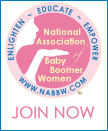Dots,
I listen a lot to C-Span Radio, which is available in this area, as I drive to and from work (can't pick it up in the house though) 90.1 FM. It's the same as one of the broadcast Cspan channels. I think this is the best public forum that still exists in this country. CSpan is funded by a consortium of cable TV owners. Its purpose is to cover speeches and events (like sessions of the House and Senate, etc.) It can be excruciatingly boring at times. They allow people to call in to ask questions, if they have a guest speaker. At other times, the program host simply answers the phone and people call in to voice their opinions. The host doesn't comment or answer questions, but says that they'll try to find someone with the answer.
Because I drive a lot commuting to work, I listen to every possible talk show besides Cspan -- NPR's talk of the Nation, morning edition and all things considered, Terry Gross, the Diane Ream show (from Wash DC), Maryland Morning, The Cojo Nambi show (also DC), Rush Limbaugh, Sean Hannity, Dr. Laura, the Christian network, the local Ron Smith Show, DC 101 (I sometimes listen to the raunchy hard rock DJs. Ew!) In other words, I listen to a lot of sources. I also read the local papers (though I just canceled the Baltimore Sun out of protest for how they're destroying it since it was bought by Chicago real estate mogul Zell. Now I read it online. And can you believe I can't get the Baltimore Examiner to deliver their free paper to my house? Not sure why. All my neighbors seem to get it.) I also read the NY Times at work.
The problem with journalism is the way it has evolved so that journalists only interview the "experts" on things. It becomes a sort of game, in that the experts will put out official press releases, or give speeches focusing on certain events, and the reporters aren't allowed to bring up topics the experts haven't mentioned. On TV occasionally you hear from the "(wo)man on the street" and how some particular thing effects them.
As I said elsewhere in the forums, I'm teaching a course about propaganda in the United States. I define propaganda as being manipulated without your knowledge or consent. (Thus, a polemical piece or editorial, or advertisement wouldn't be propaganda. However one-sided it is, if it's well reasoned, then it gives you a choice). This summer I read 50-60 books preparing for this course. The books weren't all about propaganda per se, first of all, because there aren't very many of those and the best ones are from the 1920s and 1930s which have been long out of print (I've got them too though). But I've also read about the early 20th century push to give more power and rights to corporations -- in my research I found that most of the propaganda we're subjected to in this country is from big corporations. Remember -- I define propaganda as manipulating without our knowledge or consent, so I'm talking about strategies to prevent us from getting information. Big example: hormones in milk products. Monsanto has pushed legislation in various states to make it illegal to "slander" hormone-free milk. It sounds absurd. The beef industry did something similar in Texas (remember when Oprah was sued for "slandering" beef?)
I also look at FAIR (Fairness and Accuracy in Reporting) which is an independent press watchdog group.
The idea of experts in charge goes back to the Hamilton-Jefferson debate at the founding of the US. It was re-invigorated in the early 20th century because the wealthy elite thought the new immigrants were too stupid to make their own decisions.
















 Previous Topic
Previous Topic Index
Index
